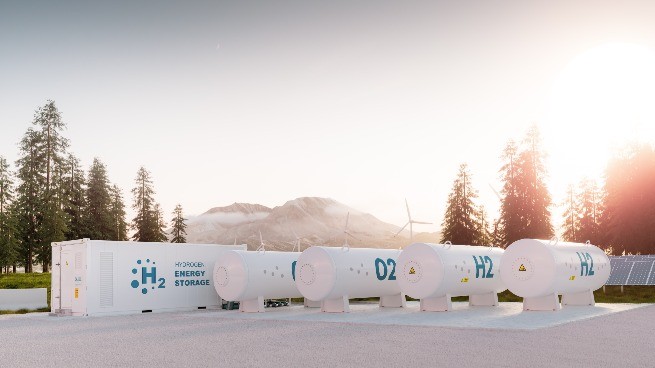{{item.title}}
{{item.text}}

{{item.title}}
{{item.text}}
To win this race, every industry needs to do more – and use less. Delivering radical decarbonisation by scaling up renewables, building greener and operating leaner. By creating sustainable outcomes for people, planet and performance, we can help you target the change that matters to make the transition add up to more.
PwC at World Energy Congress 22 - 25 April
PwC is the platinum sponsor at this year's World Energy Congress. Join us on April 22.25 and find out how you can thrive though the energy transition. Find out more.
Transportation. Manufacturing. Mining. Industries that have big power needs also need big change. Delivering radical decarbonisation by powering up renewables and building greener, sustainable infrastructures. Creating greater value for people, planet and performance.
Deep dive
Energy system advances can help your organisation create value, become more sustainable and build resilience. Transform your energy demand to improve productivity and profit margins, reduce exposure to volatility and political events, and enhance the reputation of your business.
Deep dive
Prof. Michael Pollitt (Professor of Business Economics, Judge Business School, Cambridge University) on the market design systems required to meet net zero goals and the key uncertainties that remain for a global energy transition.
Prof. Michael Pollitt (Professor of Business Economics, Judge Business School, Cambridge University) on the market design systems required to meet net zero goals and the key uncertainties that remain for a global energy transition.
View TranscriptEnergy is the nexus, not only for connecting groups in new ways but as the source of strategic innovation for a net zero economy. These intersections will shed light on emerging marketplaces, products and ecosystems that will fuel the net zero economy. Visit our sponsored content hub to learn more.
Article 25 minutes read December 15, 2022
Hydrogen may be crucial in the successful implementation of a net-zero strategy. Rapidly determine if the switch to hydrogen is worth it and build a first business case analysis. The online calculator enables you to quickly assess your application-specific hydrogen requirements and related electricity requirements
Get started

Energy, Utilities and Resources Leader, Partner, PwC Germany
Tel: +316 5160 9178



Global Private Equity, Real Assets and Sovereign Funds Leader, PwC United States
Tel: +1 617-834-4900



Global Energy, Utilities and Resources Industry Executive, PwC Germany
Tel: +49 211 981 4602

Global Industrial Manufacturing & Automotive Executive, PwC United Kingdom
Tel: +44 7738 845 605





